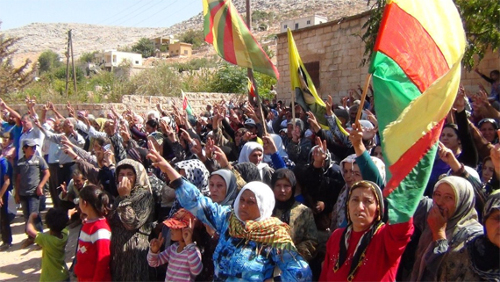
by Janet Biehl, ROAR Magazine
In early December an international delegation visited Cezire canton in Syria's Kurdish-majority northern region of Rojava, where they learned about the revolutionary process underway there. Longtime Vermont-based Green activist and writer Janet Biehl was part of the delegation, and offers this account. —World War 4 Report
From December 1 to 9, I had the privilege of visiting Rojava as part of a delegation of academics from Austria, Germany, Norway, Turkey, the UK, and the US. We assembled in Erbil, Iraq, on November 29 and spent the next day learning about the petrostate known as the Kurdish Regional Government (KRG), with its oil politics, patronage politics, feuding parties (KDP and PUK), and apparent aspirations to emulate Dubai. We soon had enough and on Monday morning were relieved to drive to the Tigris, where we crossed the border into Syria and entered Rojava, the majority-Kurdish autonomous region of northern Syria.
Recent Updates
5 hours 17 min ago
5 hours 56 min ago
10 hours 10 min ago
10 hours 40 min ago
1 day 3 hours ago
1 day 3 hours ago
2 days 12 hours ago
3 days 3 hours ago
3 days 4 hours ago
3 days 4 hours ago